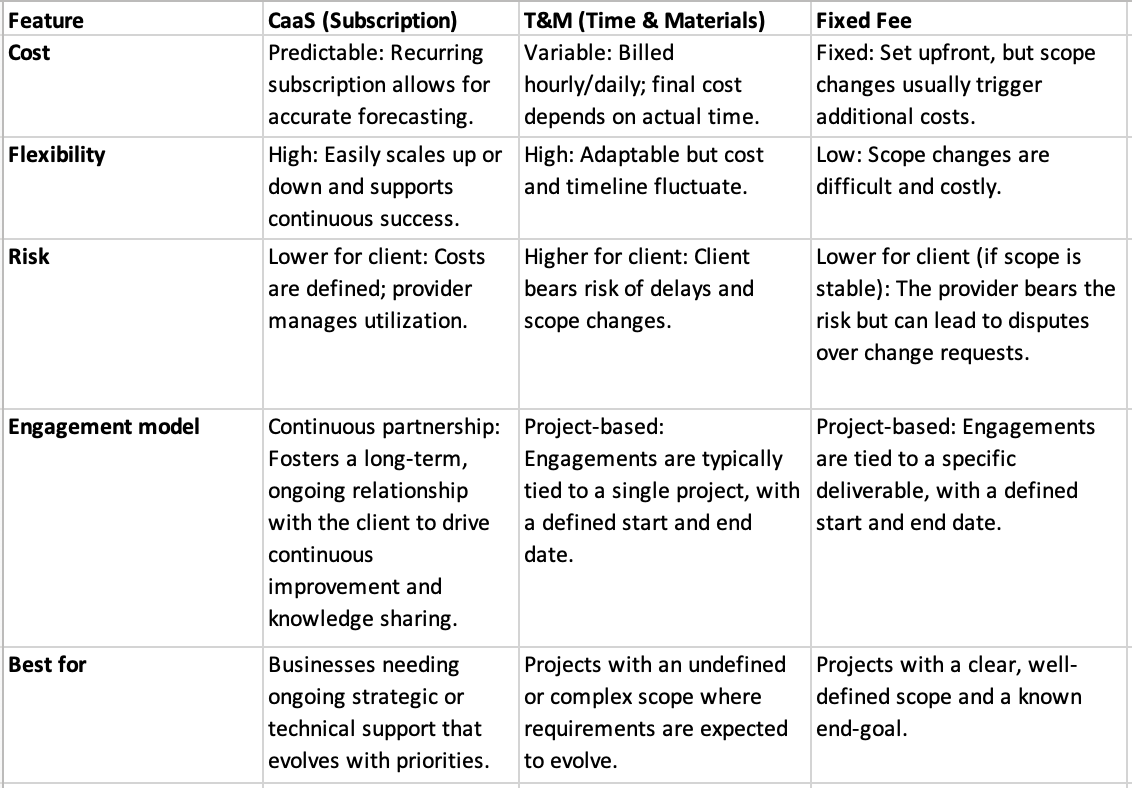
As AI continues to reshape how business gets done, industries like finance, retail, manufacturing, and healthcare are under increasing pressure to act quickly and stay adaptable. Rather than committing to lengthy and rigid consulting projects, many are turning to models that provide specialized expertise exactly when it’s needed – a concept known as consulting-as-a-service (CaaS).
Traditional consulting can be too slow or rigid in today’s environment. Companies are dealing with frequent disruption: AI innovations, economic pressures, evolving customer expectations, and talent shortages. They can’t afford to wait months for recommendations; they want to see value sooner.
Because of this, organizations are prioritizing a few key demands:
CaaS is growing in popularity because it offers timely support and strategic input without the overhead and delays of conventional consulting contracts.
Adapting to technological waves isn’t a new business challenge – businesses have navigated everything from the telegraph to the smartphone. What’s different today is how fast, interconnected, and unpredictable they are. Market shifts can happen overnight, cybersecurity threats evolve constantly, and AI tools change what’s possible in a matter of months rather than years.
CaaS helps businesses respond more dynamically. Instead of waiting for full project kick-offs or big consulting rollouts, teams can engage expert help as priorities emerge.
Here’s how it plays out:
Together, these make consulting more accessible, responsive, and likely to deliver early and ongoing value.
Modern consulting isn’t about one-size-fits-all projects, it’s about matching expertise to evolving business priorities. CaaS introduces two key methodologies that make this possible: fluid project scopes and subscription-based engagements.
This approach allows organizations “dial up” or “dial down” consulting support as needed. Instead of locking into long-term contracts, companies can access specialized talent on demand, whether it’s to accelerate a cloud migration, implement a new data platform, or explore AI opportunities.
Advantages include:
A fluid model gives organizations the flexibility to realign priorities without losing momentum, something that traditional project scopes rarely allow.
The subscription model replaces project-by-project contracting with an ongoing partnership. Instead of paying by the hour or for a fixed deliverable, businesses subscribe to continuous access to consulting expertise. The approach is especially valuable for companies that need regular strategic input but don’t have the budget or bandwidth for full-time internal teams.
Benefits include:

The right engagement model for your organization depends greatly on your specific initiatives, goals, and internal structure. If you’re interested in learning more about CaaS, let’s connect. Concord offers flexible engagement models that combine deep expertise with the flexibility modern organizations require.
Not sure on your next step? We'd love to hear about your business challenges. No pitch. No strings attached.